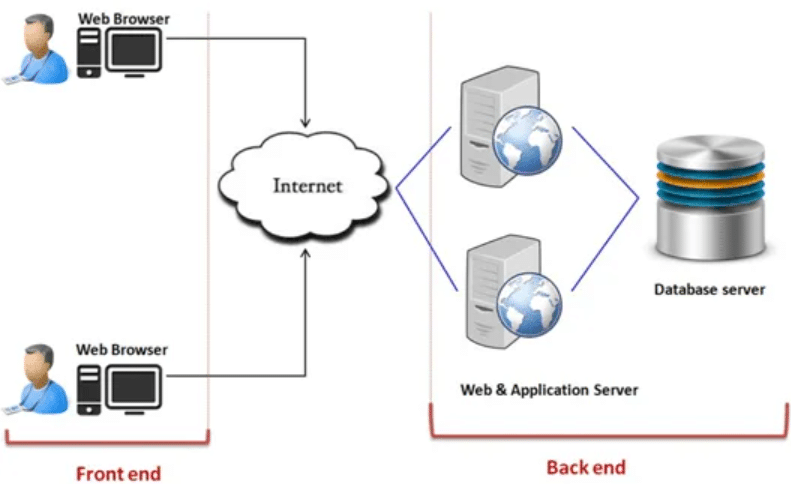Understanding Cloud Server Hosting – In the digital age, where speed, reliability, and scalability are paramount, cloud server hosting has emerged as a revolutionary solution for businesses and individuals alike. This technology has redefined how we store, access, and manage data and applications over the internet. Whether you are a small startup, an expanding enterprise, or a developer looking for flexible computing resources, cloud server hosting offers a powerful alternative to traditional web hosting models.
This article will dive deep into what cloud server hosting is, how it works, its advantages, types, security aspects, use cases, and how to choose the right provider.

What Is Cloud Server Hosting?
Cloud server hosting is a type of web hosting that uses virtual servers running in a cloud computing environment. Unlike traditional hosting, where resources are limited to a single physical server, cloud hosting pools resources from a network of interconnected servers. These servers—often spread across different geographic locations—work together to ensure optimal performance, scalability, and redundancy.
In simpler terms, cloud server hosting delivers computing services—like servers, storage, databases, networking, and software—over the internet (“the cloud”) to offer faster innovation, flexible resources, and economies of scale.
How Does Cloud Hosting Work?
At the core of cloud hosting is virtualization. Physical servers are divided into multiple virtual machines (VMs) using hypervisor technology. These VMs operate independently and can be allocated to different users or applications.
Cloud hosting providers typically maintain massive data centers equipped with physical hardware, which are managed and maintained by dedicated IT professionals. When a user signs up for cloud hosting services, they are essentially renting a portion of this infrastructure in a virtual environment.
Resources such as CPU, RAM, storage, and bandwidth can be adjusted on demand, allowing for dynamic scaling. If one server fails, traffic is automatically rerouted to another functioning server, minimizing downtime.
Types of Cloud Hosting
There are several types of cloud hosting models, each serving different purposes:
1. Public Cloud
-
Provided by third-party providers like AWS, Google Cloud, and Microsoft Azure.
-
Resources are shared among multiple users.
-
Cost-effective and scalable.
-
Ideal for startups and small businesses.
2. Private Cloud
-
Hosted on a private infrastructure, either on-site or by a third-party provider.
-
Dedicated resources for a single organization.
-
Offers enhanced security and control.
-
Best for industries with strict regulatory requirements.
3. Hybrid Cloud
-
A combination of public and private clouds.
-
Allows data and applications to move between the two environments.
-
Offers a balance between cost-efficiency and security.
-
Suitable for businesses with diverse needs.
4. Managed Cloud
-
The provider takes care of infrastructure management, security, backups, and updates.
-
Allows clients to focus on their core business operations.
-
Ideal for non-technical users or businesses lacking in-house IT staff.
Benefits of Cloud Server Hosting
Cloud hosting is widely adopted because of its numerous advantages. Here are the most significant ones:
1. Scalability
With cloud hosting, resources can be increased or decreased in real-time based on demand. This flexibility is invaluable for businesses experiencing fluctuating traffic or growth.
2. High Uptime and Reliability
Since data is distributed across multiple servers, there’s no single point of failure. This architecture ensures high uptime and business continuity, even if one server fails.
3. Cost Efficiency
You only pay for the resources you use, which eliminates the need to invest in expensive hardware. This pay-as-you-go model reduces capital expenditure and operational costs.
4. Enhanced Performance
Most cloud providers use high-performance hardware, including SSD storage and powerful processors, to ensure fast data access and application load times.
5. Global Accessibility
Cloud servers can be accessed from anywhere with an internet connection. This global reach supports remote work, international collaboration, and decentralized teams.
6. Security
Contrary to popular belief, cloud hosting can be highly secure. Providers implement advanced security protocols, encryption, firewalls, and regular audits to protect client data.
7. Automated Backups and Recovery
Most cloud platforms offer built-in backup solutions, ensuring data is not lost in case of failure or human error.
Cloud Hosting vs Traditional Hosting
| Feature | Cloud Hosting | Traditional Hosting |
|---|---|---|
| Resource Allocation | Dynamic and scalable | Fixed and limited |
| Uptime | Very high (load-balanced servers) | Limited to single server reliability |
| Cost Structure | Pay-as-you-use | Flat rate, regardless of usage |
| Performance | Optimized with load balancing | Dependent on physical server |
| Maintenance | Managed by provider | Requires manual effort |
| Accessibility | Accessible globally | Typically local or region-specific |
Use Cases for Cloud Server Hosting
Cloud hosting serves a wide range of applications:
1. Website and Application Hosting
From small blogs to enterprise-level web applications, cloud servers provide the flexibility and power needed to host them effectively.
2. E-commerce Platforms
Online stores often experience traffic spikes during promotions or holidays. Cloud hosting allows seamless scaling to handle sudden demand surges.
3. Development and Testing
Developers can quickly set up testing environments without investing in physical hardware. It supports rapid deployment and iteration.
4. Data Storage and Backup
Businesses can store vast amounts of data with redundancy, ensuring availability even in disasters.
5. Streaming Services
Whether it’s video, music, or live broadcasts, cloud hosting supports high-bandwidth delivery and global accessibility.
Security Considerations in Cloud Hosting
While cloud hosting offers many benefits, security should never be overlooked. Here are key security practices:
-
Encryption: Both data in transit and at rest should be encrypted.
-
Firewalls and Intrusion Detection: Prevent unauthorized access to servers and monitor suspicious activity.
-
Regular Patching: Ensure that operating systems and applications are always up to date.
-
Multi-Factor Authentication (MFA): Adds an extra layer of security to login processes.
-
Access Control: Implement role-based access to minimize risk.
-
Data Backups: Maintain regular backups to recover from ransomware or accidental deletions.
Reputable providers also comply with international standards such as GDPR, HIPAA, and ISO certifications.
Choosing the Right Cloud Hosting Provider
Selecting the right provider is crucial. Here are the factors to consider:
1. Performance and Reliability
Look for providers that offer at least 99.9% uptime, SSD storage, and high-speed networking.
2. Scalability
Ensure the platform allows you to scale up or down without complications or excessive fees.
3. Support and Management
Opt for a provider that offers 24/7 technical support and managed services if you lack in-house expertise.
4. Security Features
Check for encryption, firewall, DDoS protection, and compliance with security standards.
5. Pricing Structure
Understand how the billing works—hourly, monthly, or by usage—and choose what best fits your budget.
6. Data Center Locations
Choose a provider with data centers close to your target audience to reduce latency.
7. User Interface
A clean, user-friendly control panel can save hours of management time.
Popular Cloud Hosting Providers
Some of the most trusted names in cloud hosting include:
-
Amazon Web Services (AWS)
-
Microsoft Azure
-
Google Cloud Platform (GCP)
-
DigitalOcean
-
Linode
-
Vultr
-
Cloudways
-
Kamatera
Each of these platforms has its own strengths, pricing models, and specialties. Evaluate them based on your specific requirements.
Conclusion
Cloud server hosting is more than just a trend—it is the future of IT infrastructure. With its flexibility, scalability, cost efficiency, and powerful performance, cloud hosting has become an indispensable asset for businesses and developers around the world.
Whether you’re launching a simple website, managing a high-traffic e-commerce store, or building enterprise-grade applications, cloud hosting provides the tools and reliability to support your digital ambitions.
As the demand for agility and innovation continues to grow, adopting cloud server hosting isn’t just a smart decision—it’s a strategic necessity.
